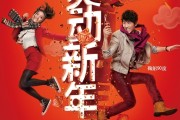
1. 你幸福吗?Ni xing fu ma? – Are you happy?
During the National Day holiday last year, CCTV launched several random interviews in the street asking Chinese people the same question, “Are you happy?”. Thousands of bizarre responses drew attention to this mundane question. Among the answers, the classic was, “My family name is Zeng, not Fu”, which was humorous because the Chinese question “are you happy” sounds similar to “Is your family name ‘Fu’?”, resembling the joke of “Who is Hu” which sounds like “Who is who” (Hu is the family name of the former Chinese President). CCTV intended to broadcast such interviews to show how happy Chinese people are living in China, but many Chinese people took it as an ironic question, asking the government how can they can live a happy life with such high real estate prices and other social issues.
2. 正能量 Zheng neng liang – Positive Energy
Originally from physics, “positive energy” was once used by Stephen W. Hawking in his well-known book A Brief History of Time, “The matter in the universe is made out of positive energy”. However, when Richard Wiseman, a British professor at the University of Hertfordshire for the Public Understanding of Psychology, introduced “positive energy” into his book Rip It Up to encourage people to unleash their powerful hidden potential, these words became widely used by the media and highlighted within newsletters and any form of advertising to pass the passion to encourage and inspire citizens when there is a disaster or just when an unpleasant incident occurs.
3. 元芳,你怎么看 Yuan Fang, ni zen me kan? – Yuanfang, What Do You Think?
Di Renjie: Yuan Fang, what do you think?
Yuan Fang: Your majesty, I think it is queer.
The above dialogue comes from a popular Chinese TV series called Amazing Detective Di Renjie and happened between Di Renjie and his deputy to show internal discussion about a case. The reason why it is re-used in Chinese daily life came after an obvious murder was ruled a suicide by Chinese police in Quanzhou, Zhejiang province. A netizen suspected there must be something that had to be hidden to protect the police. Afterwards, this catchphrase began being used to express suspicion and how ridiculous a situation is.

4. 屌丝 Diaosi – “Loser”
It seems Chinese people are beginning to get used to self-mockery with the emergency of the Diaosi concept. Many Chinese men like to call themselves “Diaosi” to self-deprecate themselves as a helpless, poor, and tiny character. Compared to social elites and bigwigs, “diaosi” are poorly educated, engaged in low-paid jobs, addicted to animation and online games, have never had a girlfriend, and live a poor life. Even people who do not fit this characterization often refer to themselves as “diaosi” for humor.
5. XX Style
The song “Gangnam Style“, with repeated rhythm and popular dance steps, led another gust of Korean culture into China, where it quickly became the hottest and most demanded song in KTVs. Additionally, Chinese people use XX-Style with other key words to discuss a specific topic in order to hide a topic or just replace the word “thing”.
6. 躺着也中枪 Tang zhe ye zhong qiang – Get Shot Even When Lying Down
Usually, ducking or dropping to the ground when bullets fly can drastically reduce one’s chances of getting hit. Therefore, getting shot even when lying down came to represent being innocently involved in or dragged into in a dispute.
7. 高富帅 Gao fu shuai – Tall & Rich & Handsome
This set of adjectives has become a label for any man who is good looking, 185cm (or above), and is considered second generation rich (the child of rich parents). It has become a standard for date-selection or even son-in-law selection among women (and their parents and grand-parents), and subsequently inspired a standard for women: “White, Rich, and Beautiful”.
8. 中国式XX Zhong Guo shi XX – Chinese-style XX, or XX with Chinese Characteristics
This originally came from a novel called Divorce with Chinese Characteristics that illustrated a typical way married Chinese couples ultiamtely get divorced going through phases of fierce fighting, a Cold War [mutual disregard], and finally the dissolution end of the marriage. After that, every single phenomenon typically found in China had the short phrase “with Chinese characteristics” or “Chinese-style” added to mock Chinese social problems. For instance, Chinese-style street crossing.
9. 压力山大 Ya li shan da – “Pressure The Size of a Mountain”
This homophone of the foreign name “Alexander” became a new way for Chinese people to express the feeling of too much stress or pressure while keeping a sense of humor. The Chinese characters themselves spell out 压力 (pressure) and 山大 (big as a mountain).
10. 赞 Zan – Approve
You’ve probably used the small blue “Like” icon on Facebook. Zan, is a kind of dialect from the mid-east of China (Shanghai, Jiangsu and Zhejiang province), and serves a similar function to “Like”, by showing agreement, praise, and / or appreciation.
Author: Li Mo from Daxue Consulting China







